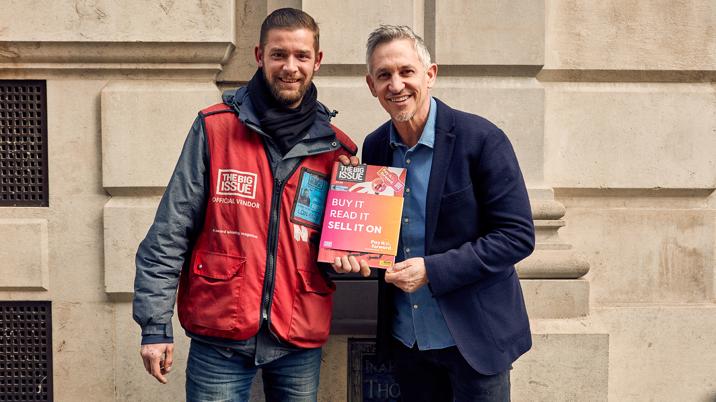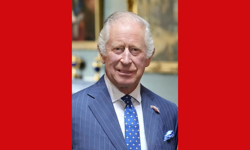
In the black
Some sections of Fleet Street have always been a bit sniffy about The Guardian. Because, the thinking went, when the going got tough, it would always be bailed out by its owners, the Scott Trust, it didn’t face the same financial pressures as other papers. It was a bit soft.
Well, that as maybe, but in 2016, The Guardian set itself a three year target of breaking even by 2019. And… it’s done it!
In May, they announced a 2018/19 profit of £0.8m, compared to losses in the preceding two years of £19m and £57m.
The Guardian’s strategy has been based on creating deeper relationships with readers, increasing reader revenues, and reducing overall costs by 20%.
GMG reports that it’s now a majority digital business with £123 million of digital revenues in 2018/19 (2017/18: £108.6m) coming from several digital streams including digital advertising, digital subscriptions and reader contributions. Digital revenues now make up 55% of GMG’s total revenues, compared to 50% in 2017/18 and 40% in 2015/16.
Guardian chief executive David Pemsel: “GMG is now a more reader-funded, more digital, more international business.”
Its new goal is to have two million supporters financially contributing to The Guardian, through regular or one-off payments or subscriptions, by 2022.
With its distinctive liberal voice and a growing presence in the US, I think there’s every chance they’ll do it. Throw in a messy Brexit this year and a Trump re-election next and they’ll probably clear it by some margin.
FT hits one million
The Financial Times has also had cause to celebrate. It recently announced a paying readership of one million, which it says is an all-time high and a key strategic goal.
The milestone, apparently reached one year ahead of schedule, comes on the back of a strong business performance, with both operating profits and revenues growing last year.
FT CEO John Ridding: “By pioneering a subscription model and investing in digital transformation, we have proved that quality journalism can be a quality, growth business. We have also shown the enduring value of independent, authoritative and reliable reporting and analysis in a time of fake news, sensationalism and polarisation in media.”
The FT is a fantastic brand, but the extent to which it provides a roadmap for other newspapers is debatable. People generally buy the paper because they work in the financial services sector and it provides them with must-have information. They don’t buy it for its general news coverage, excellent though it may be. To that extent, the paper has more in common with the B2B media sector than the newspaper one.
And then there were none
Talking of B2B, one major player is divesting itself of its publishing businesses so fast, that there’ll soon be not much of it left.
Back in October, Centaur Media announced its intention to focus attention on its marketing division, now named Xiem (Google it).
This has led to a flash sale of its other publishing assets: in the last couple of months Centaur has sold its financial services division to Metropolis, its travel titles and events to Northstar and its human resources portfolio to DVV Media.
Commenting on the sale to Metropolis, Andria Vidler, chief executive, commented: “This disposal continues the simplification of Centaur, further reducing our advertising exposure and allowing us to focus on developing products and services with stronger recurring revenues. A simpler group structure will allow us to deliver efficiencies and other operational benefits.”
At the time of going to press, that leaves three divisions: Xiem, The Lawyer and its Engineering titles.
To date, the divestment programme has put £19.25m in the kitty and that figure will rise if and when they find buyers for the other two divisions. Centaur has said that it will announce what it will do with all the extra cash in due course, once presumably the competing claims of shareholders and its remaining publishing business have been resolved.
Once Centaur becomes a single division company, will it be known as Xiem or Centaur? Personally, I hope it’s the latter. Centaur has been a prominent name in B2B publishing for over thirty years and many notable publishing names (Incisive’s Tim Weller being one) have passed through its doors. It would be a shame to see it disappear.
The Last Emperor
As Centaur goes full throttle down the divestment route so that it can put all its eggs in one specialised basket, Mark Allen Group is going fast in the opposite direction acquiring publishing businesses left, right and centre, across a wide range of markets.
In the last couple of years, MAG has acquired Community Care (social work), Rhinegold (music), Unity Media (built environment) and Miles Publishing (ICT).
In April, they bought twelve transport titles from UKi Media & Events, a company which plans to focus on its trade shows in future.
Mark Allen’s strategic goal, as he recently told InPublishing, is to reach £100m turnover by 2025, which is roughly double its current level, and he plans to do that primarily through acquisition.
Mark is, refreshingly, a big believer in magazines. As UKi’s Tony Robinson said, after the deal was announced: “I've spent a lot of time with Mark Allen making sure that the titles he's acquiring will fit his business and prosper under his ownership which I have every confidence will be the case. His company has a fantastic history and I regard him highly. In fact, I've nicknamed him ‘The Last Emperor of The Magazines’ Industry’.”
Women’s sport
Last October, as reported by the BBC, a major Nielsen study found that 84% of general sports fans – more than half of whom were men – were interested in women's sport, although the interest levels were higher in sports where men's and women's events are staged together – for example, athletics or tennis – as opposed to being staged separately, like in golf, cricket or football.
The study also found that women's sport is seen as more 'inspiring', 'progressive', 'family-oriented' and 'clean' than men's sport, while the latter is seen as being more 'money-driven'.
Clearly, The Telegraph thinks there’s publishing potential in statistics like these, because in March, they unveiled Telegraph Women’s Sport (TWS).
TWS will see fully integrated content in the Sport sections of the Telegraph in print and online, a new monthly standalone supplement, and TWS social and digital channels.
Anna Kessel, The Telegraph’s women’s sports editor, said: “Over the years, too many women’s sports stories have been lost, forgotten, or undervalued. The repercussions of this exclusion have been felt by all women, and by young girls in PE halls across the country. TWS aims to play a role in redressing the balance. Our mission is to create greater visibility for women’s sport, bring new audiences to the subject, showcase new voices, unearth thrilling stories, champion sporting brilliance, and campaign on issues that we hope will help to bring about change for future generations of women and girls.”
Buy & Sell
The Big Issue has come up with a novel way of boosting the income of their street vendors. A new scheme – Pay It Forward – turns The Big Issue into the world’s first resellable magazine.
The system means each magazine can be sold-on each time after it’s been read. Each magazine will come with its own scannable QR code, that allows readers to pass the magazine onto a friend, who can scan the code to pay for it again.
Lara McCullagh, director of marketing and communications at The Big Issue, said: “The people who buy The Big Issue aren’t just readers, they’re often vocal champions of our mission. This fantastic new scheme gives them a way to further support their local vendor by selling the magazine onto friends and family, and offers those same vendors the opportunity to grow their income and their customer base.”
Pay It Forward offers magazine vendors the opportunity to earn extra money from the onward sale of the magazine, making the time they spend on their pitch more lucrative. The process: Buy it. Read it. Sell it on – can be repeated many times over, creating a virtuous cycle.
Aaron Dunn, 30, who sells The Big Issue in Covent Garden, said: "It is great because you get to earn extra money on top of the sales you make of the magazine. You never know how far it is going to go. One of my magazines has already been passed around over 20 times!"
Investing in the future
Large publishing companies are increasingly setting money aside to invest in the bright young things of tomorrow, presumably because of the potentially huge returns if they back a winner, but also to keep their finger on the pulse.
Informa recently announced the launch of Informa Ventures, a “founder-friendly venture capital fund” that makes early stage investments in the knowledge and information economy.
Informa Ventures offers capital, access to markets, mentorship and expertise to entrepreneurs and founding teams. It focuses on start-ups whose products and services are based on content, intelligence and connections, and where founders have a clear vision of how disruption and innovation will challenge and shape these markets, says Informa.
“We love it when a founding team is passionate about what they do, has ambitious goals and makes us think differently about our businesses,” said Richard Stanton, managing partner, Informa Ventures. “Our investment focus is on start-ups that operate in the global market for information services, and who foresee and can seize on commercial opportunities that arise from the adoption of new technologies and changes in human behaviour and business practices.”
Informa Ventures makes Seed and Series A investments based on the potential of the product or service, the strength of the team and a clearly articulated vision of what success looks like to the founding team. Founders are expected to have exemplary knowledge of their customers and markets, a defined use for the capital and clear, measurable KPIs.
Time to brush up that business plan.
Press freedom
In Reporters Sans Frontières’ recently published 2019 World Press Freedom Index, the UK went up! Hooray! Ranking 33 is nothing to be proud of, but it’s better than 40, which is where we’d been the last two years. The organisation ranks us as ‘satisfactory’, a situation we should view as anything but.
Although, it could be worse – a full fifteen places below us, languishes the US, with its laudable but under-threat first amendment. As RSF notes: “As a result of an increasingly hostile climate that goes beyond Donald Trump’s comments, the United States (48th) has fallen three places in this year’s Index and the media climate is now classified as “problematic”. Never before have US journalists been subjected to so many death threats or turned so often to private security firms for protection.”
When it comes to constitutional amendments, the current US administration seems a lot keener on protecting the second than the first.
Incredible and shameful.
(For the record, Norway came top (again).)










